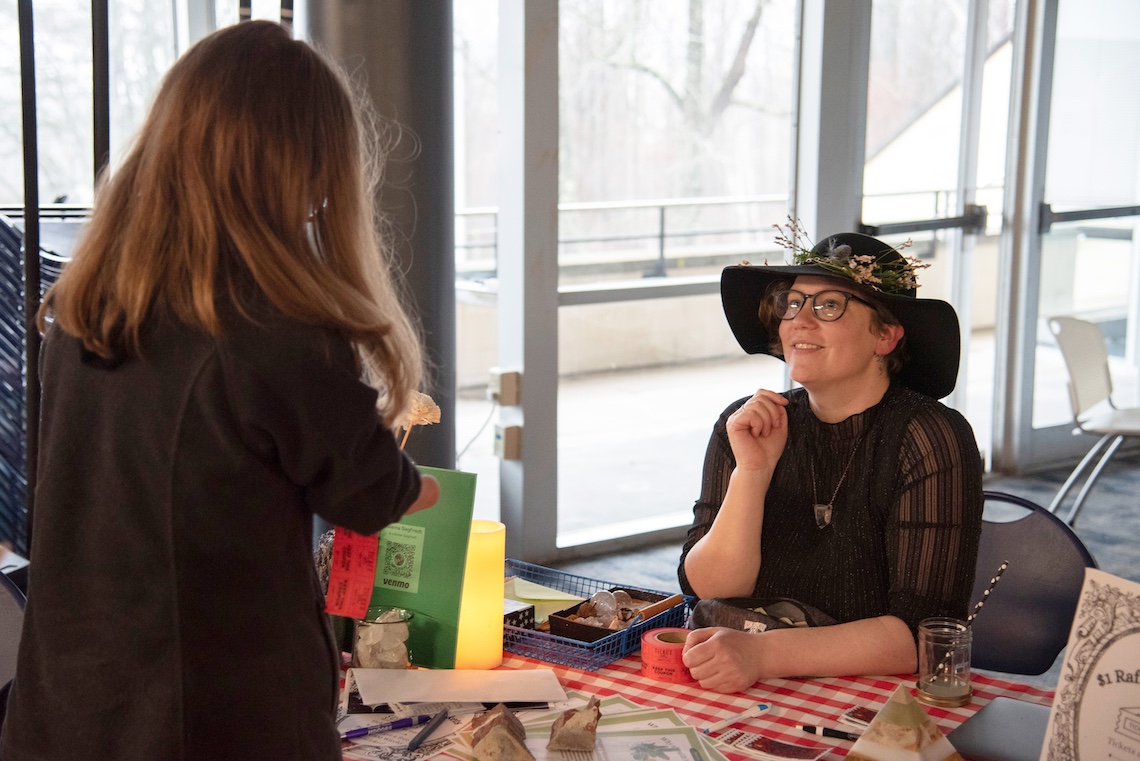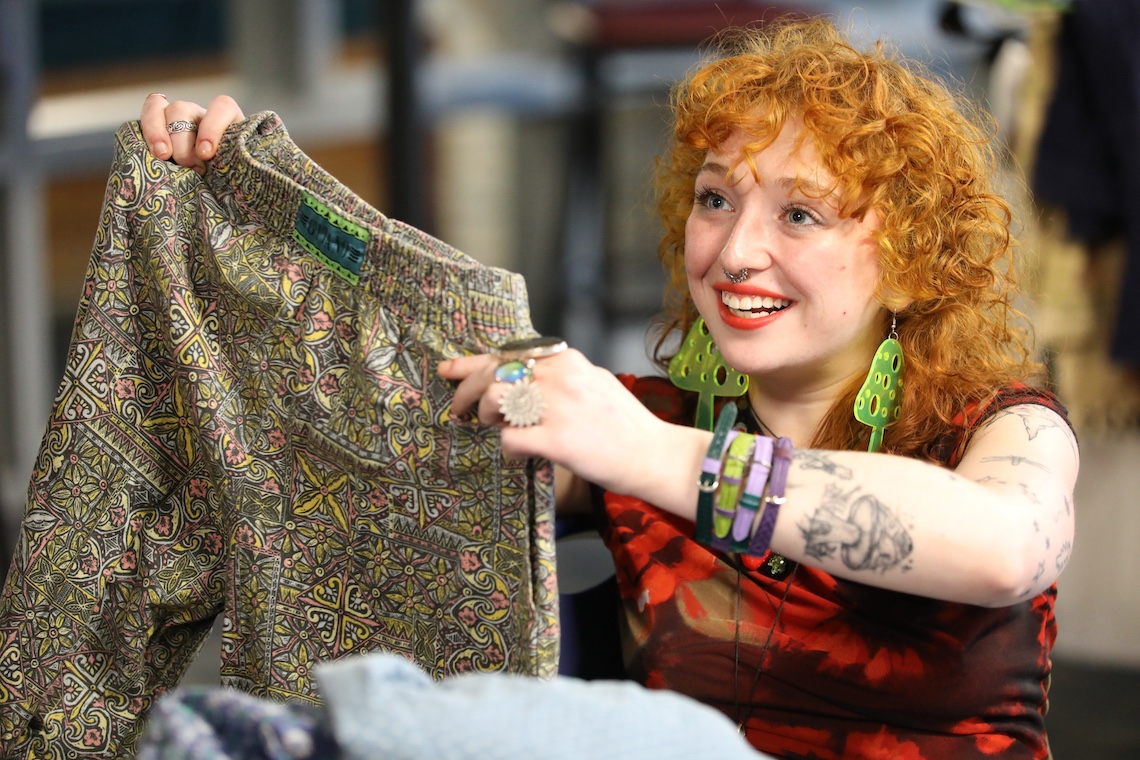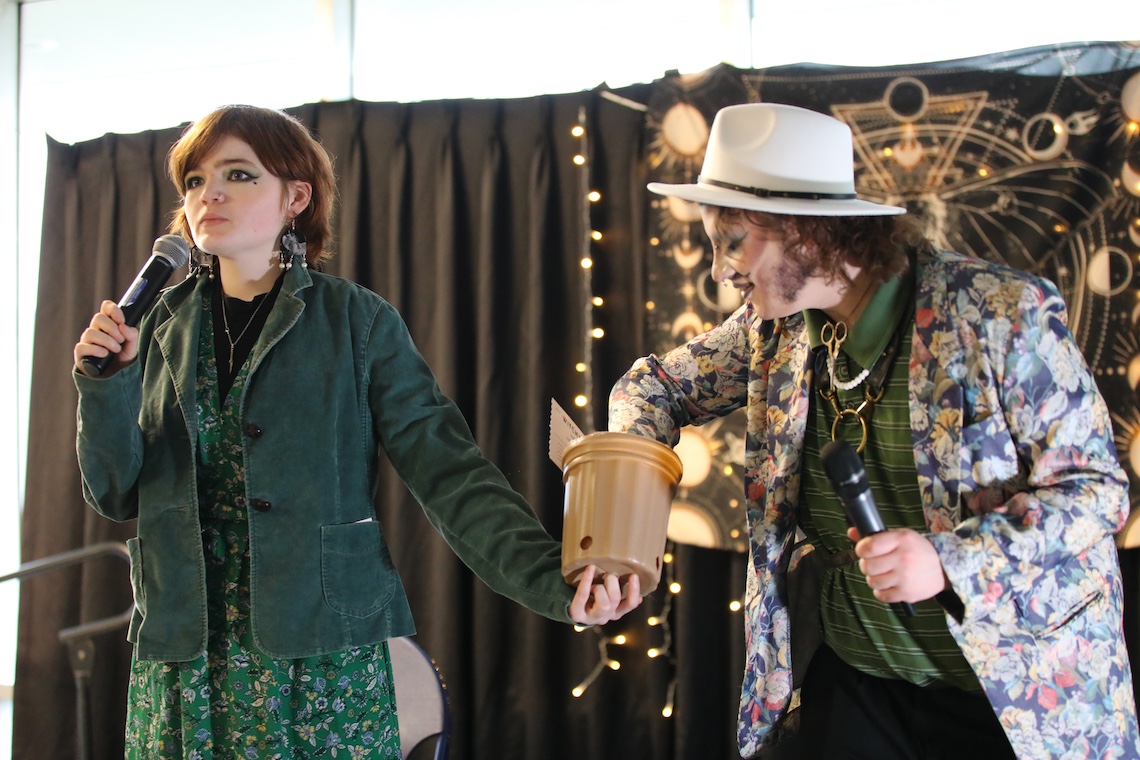
When you look around the room and notice an unusually high number of people wearing pointed hats, you’ll know you’ve arrived at the Witchy Fair.
The hats and cloaks were purely optional for visitors to the April 12 event at the University of Southern Maine in Gorham. The Women and Gender Studies (WGS) Program oversaw its planning and execution.
“I grew up very spiritual, and in my adulthood, I’ve been exploring different spiritualities,” said Alex Benoit. “The witchy realm has been on my radar for a while.”
Benoit is a junior pursuing a double major in WGS and Psychology. His refreshment table near the entrance to the lower level of Brooks Hall was the first stop for arriving fairgoers. He greeted them with a smile and a cold mocktail.
Benoit mixed the drinks based on a recipe created with a witchy clientele in mind by a local bartender. It’s made with lemon juice, lavender simple syrup, cucumber water, and seltzer.
“Everyone who has tried one has come back for more, so I think that’s a good sign,” Benoit said.
The many tables encircling the room featured a range of products and services representing folk wisdom practiced primarily by women. Within the span of a few feet, you could browse vintage clothing, purchase new additions for your herb garden, and receive a star chart reading.

The idea for the Witchy Fair began with Dr. Julianne Siegfriedt, an assistant professor of WGS and Sociology. In the downtime around her lessons, she noticed that many of her students enjoyed reading tarot cards and discussing astrology. She conceived of the fair as a place for students to build a community around a shared interest.
The fascination with women who possess special knowledge is a phenomenon that stretches worldwide and throughout history. The fair explores what it means to be a witch beyond the Halloween stereotype.
“It’s more of an alignment with honoring the earth, looking at different feminine energies that are around us, and finding power,” Siegfriedt said.
Months of planning went into the fair. Siegfriedt knew how much effort it would take after staging the inaugural fair last year. She wondered if the workload might dissuade students from trying again. Not only were her students willing to accept the challenge, they insisted upon it.
“Students were asking every week to plan this event,” Siegfriedt said. “I had students emailing me to be a part of it. When I asked for anything, they did it.”
One of the most enthusiastic contributors was Abby Milewski. She is a senior majoring in WGS and Sociology. Milewski was deeply involved in the preparations. On the day of the fair, she worked as a salesclerk in the Magic Market.
“I just really like throwing events,” Milewski said. “I’ve always really enjoyed putting on fairs. Even when I was in middle school, I still liked doing it, so I’m really happy I get to do it in college, too.”

All of the merchandise in the market was made by students and staff. There were framed art, jewelry, and puzzles for sale. Packaged as reproductive justice potions, samples of the Plan B contraceptive pill were free for the taking.
Combined proceeds from the market and a raffle totaling more than $1,000 were donated to Preble Street, a Portland-based social service organization. Students who ran their own tables kept the money they made from direct sales to cover the expenses of making their crafts.
The many vendors did a brisk business. But even more than the exchange of cash, it was the exchange of ideas between students that fair organizers were happiest to see.
“I love the community so much,” Milewski said. “I really, really enjoy being a part of something that’s so important, and sharing time and space with people who share my values. I believe in the mission of supporting our community.”

